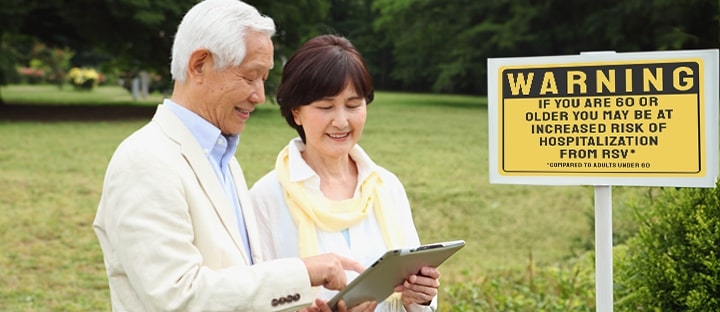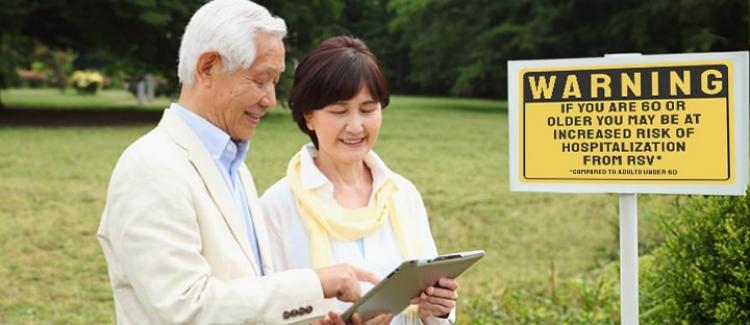
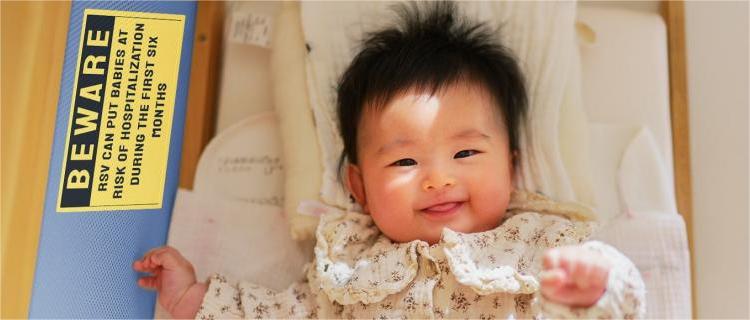
UNDERSTANDING MORE ABOUT RSV AND ITS RISK TO BABIES
Whether you have a baby or are planning for one, are currently pregnant, or are staying informed for a loved one, we have the information you need about helping protect babies from RSV. Talk to your OB-GYN about RSV.
WHAT IS RSV?
RSV is a highly contagious respiratory virus that can make babies sick and possibly send them to the hospital, especially if they’re under 6 months old. Symptoms can include irritability, not moving or eating as much, and pauses while breathing.1
HOW DOES RSV SPREAD?
RSV can be spread through the air or by touching an infected surface. When a person infected with RSV coughs or sneezes, they breathe out droplets. Other people, including babies, can become infected when those droplets contact their eyes, nose, or mouth.2
RSV RISK STARTS AT BIRTH
From the moment of birth, babies are at risk of becoming sick due to RSV.1
In fact, babies are at risk before they even leave the hospital because of how highly contagious RSV is.3
WARNING: RSV CAN LEAD TO HOSPITALIZATION1
BABIES ARE MOST VULNERABLE TO GETTING SICK FROM RSV DURING THEIR FIRST 6 MONTHS.1
A baby's immune system isn't fully developed when they are born and needs time to grow stronger.4
RSV may cause collapsed air sacs in the lungs, which leads to more serious breathing issues like severe cough, wheezing, difficulty breathing, or pneumonia.1,5
75%-80% of babies hospitalized due to RSV were hospitalized during the first 6 months of their lives.6
Babies have the highest risk of going to the pediatric intensive care unit (PICU) or using a ventilator because of RSV during the first 6 months of their lives.7,8
RSV may cause collapsed air sacs in the lungs, which leads to more serious breathing issues like severe cough, wheezing, difficulty breathing, or pneumonia.1,5
RSV MAY HOSPITALIZE MORE BABIES THAN FLU
In one study using data gathered between 1993 and 2008, researchers compared the hospitalization rates of RSV and flu in people of all ages.9
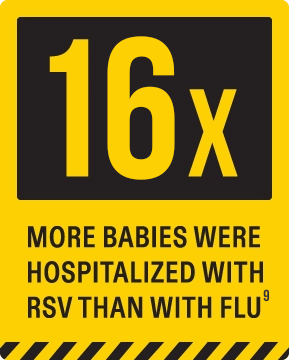
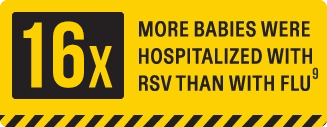
Learn about RSV now. Talk to your OB-GYN or other healthcare provider.
WARNING SIGNS AND SYMPTOMS OF RSV IN BABIES
LEARNING SOME OF THE EARLY SIGNS OF RSV CAN HELP YOU DECIDE IF IT’S TIME TO GET YOUR BABY TO THE DOCTOR.
If you notice any of these symptoms in your baby1, talk to your doctor right away.

Irritability

Not moving or eating as much

Pauses while breathing
If your baby does get RSV, try to reduce the spread to help keep your other loved ones safe—especially if you have people in your home who are at high risk of also contracting the virus, like other babies and anyone aged 60 years or older.
Learn why older adults are at risk of getting sick due to RSV
STAY AHEAD OF RSV
HELP PROTECT BABIES FROM RSV DURING ONE OF THEIR MOST VULNERABLE STAGES OF LIFE.
Washing your hands, avoiding close contact with sick people, and cleaning surfaces can help stop the spread of RSV to babies.10 But there may be more you can do.
Talk to your OB-GYN or other healthcare provider about RSV.
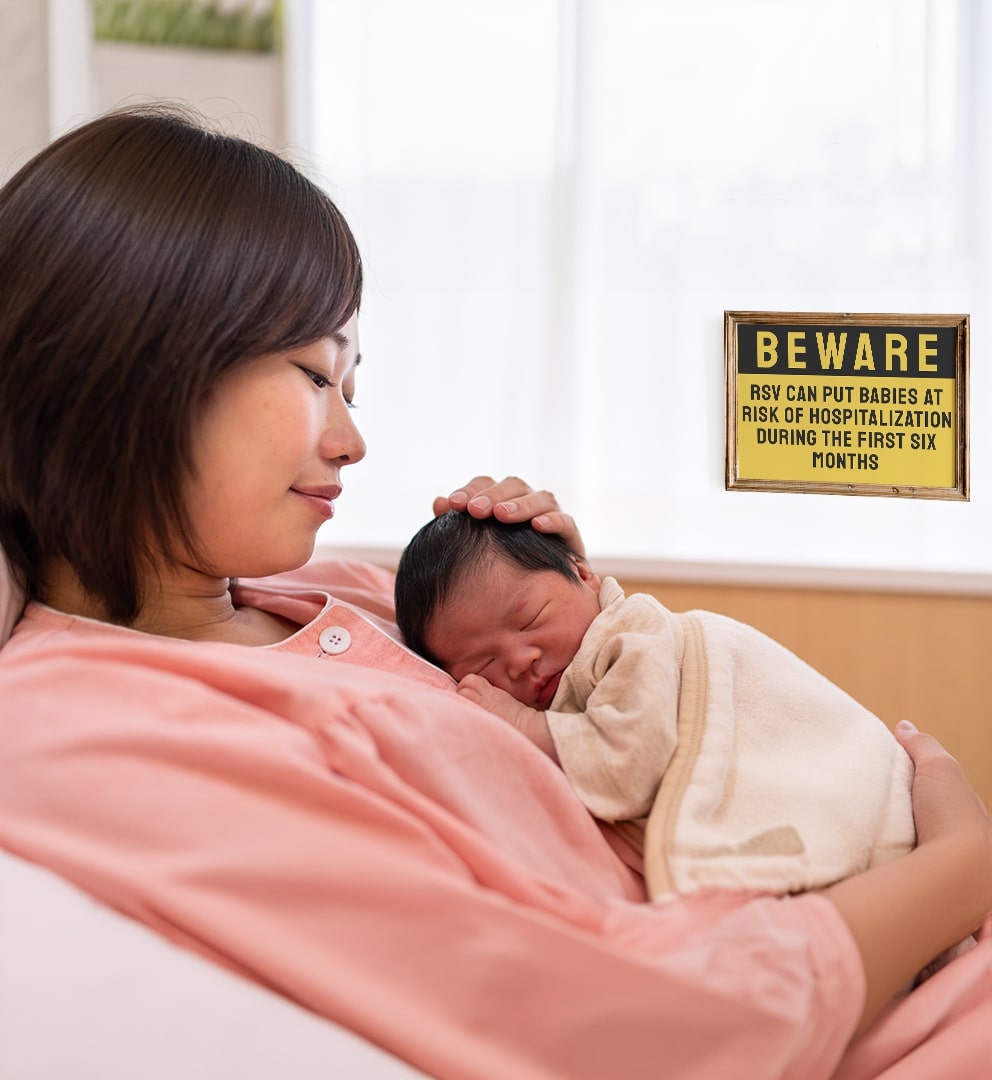
BEWARE: OLDER ADULTS ARE ALSO AT RISK OF GETTING SICK DUE TO RSV.
Find out how to protect them.
Seek advice from a healthcare professional if you or your child display symptoms that could indicate an RSV infection
